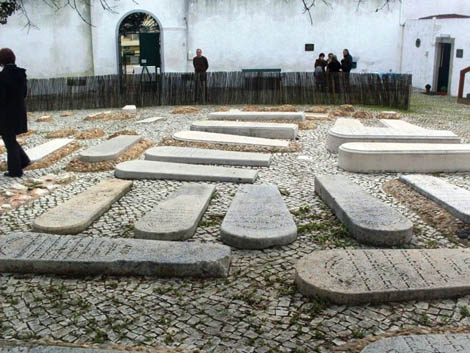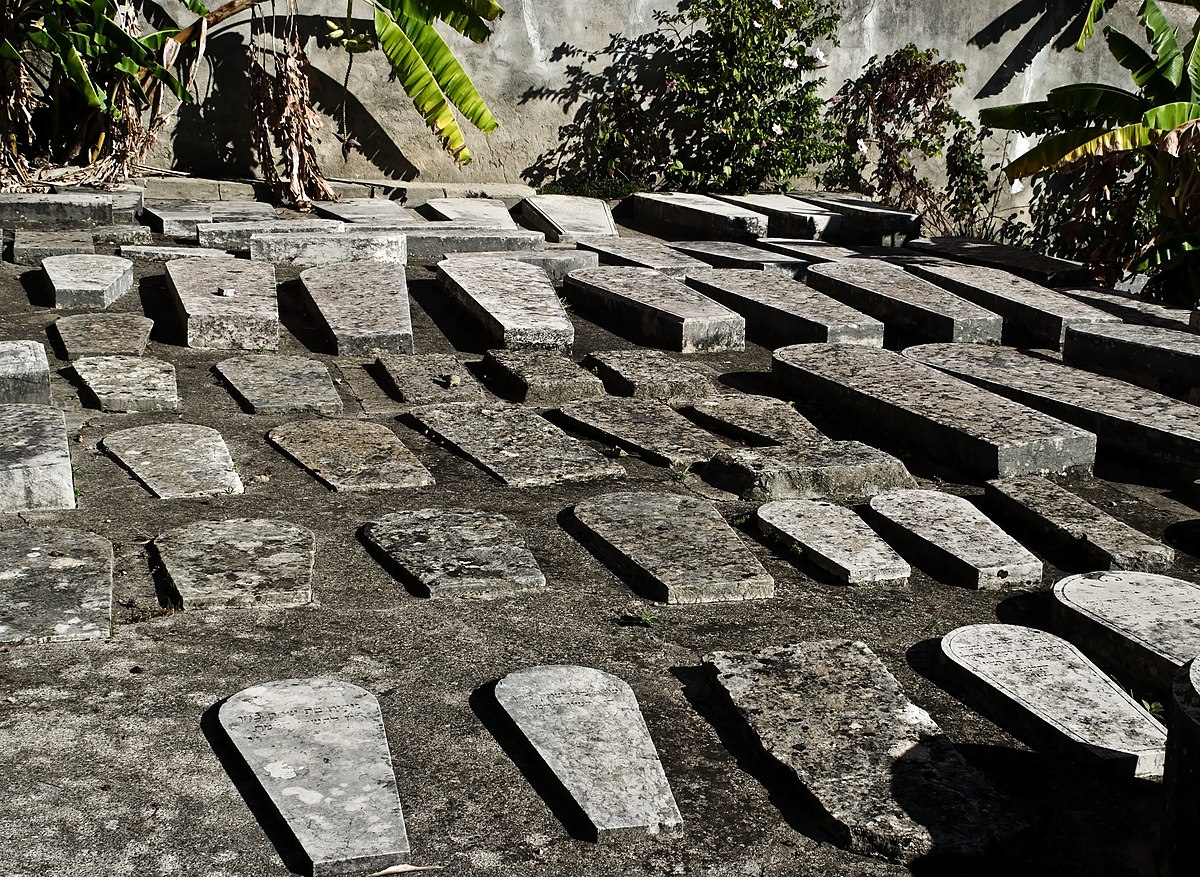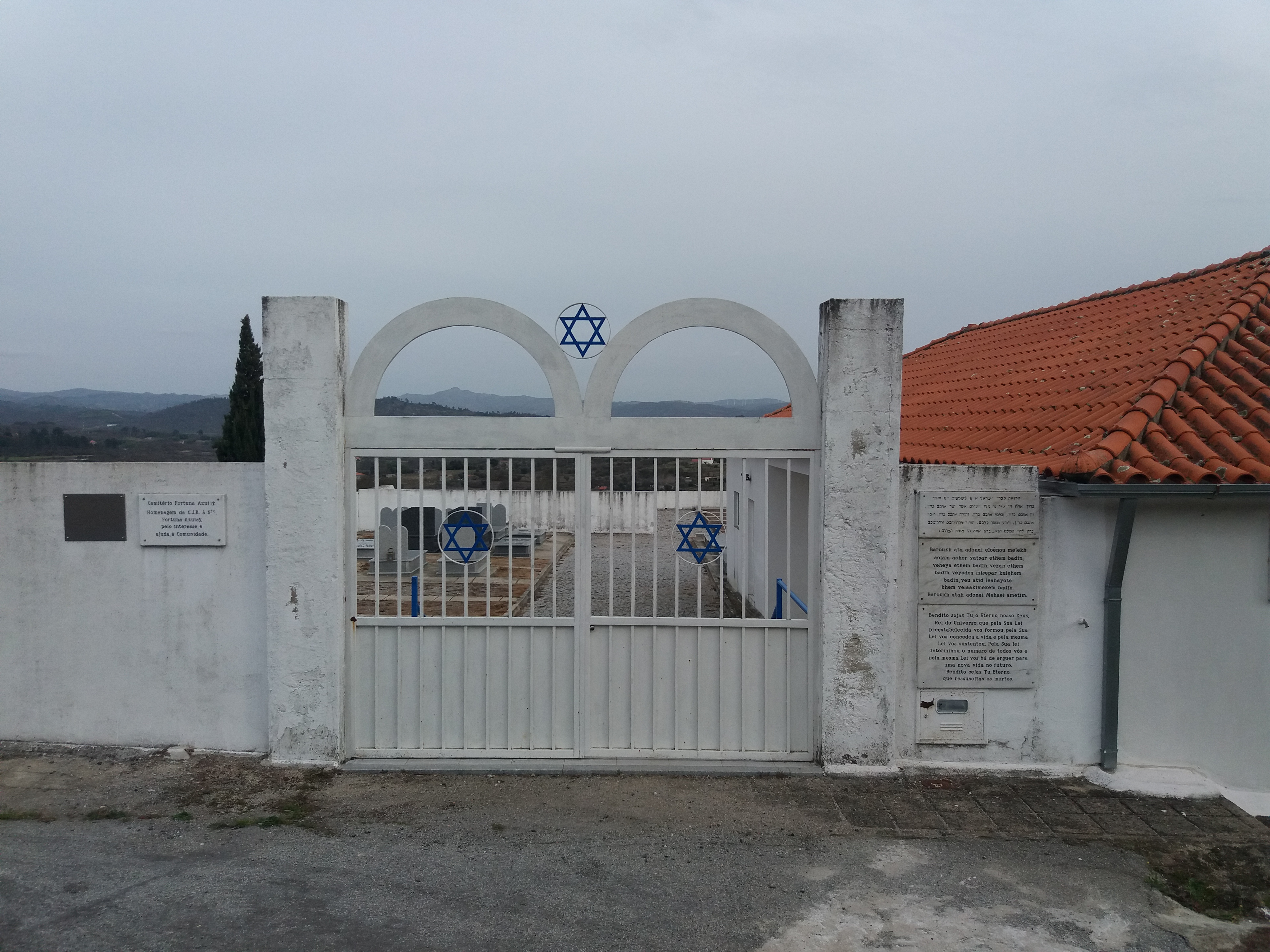The Hebrew date, 5638, written above the gate corresponds to the year 1887 of the Christian era. The actual land of the cemetery, however, which been acquired by and in the names of Joseph Sicsú, Moses Sequerra and Samuel Amram, as Jewish communities at the time had no legal existence, dates back to a notarial deed of Tuesday, 30 December 1851. To be more precise, before the acquisition of that burial ground, Rabbi Joseph Toledano had been buried there in 1838. This means that the choice of the place was deliberate. This cemetery is the last physical record of the radiant Jewish community that came from Morocco and settled in Faro between the dawn of the 19th century and the start of the 20th century. There were two synagogues and an old people’s home. It is said that so great was respect for the Jews that the Lethes Theatre closed on the Shabbat and all social events occurring on a Friday were moved to Saturday evening. The last names of the Jews who inhabited the capital of Algarve were Amram, Ruah, Levi, Ezaguy, Sequerra, Abecassis, Pariente and Buzaglo, and are soon found on tombstone inscriptions, showing their establishment in the south. The headstones of Faro Cemetery are the type dictated by the Sephardi tradition of Morocco: made of marble and placed directly over the grave. Inside the cemetery, there is a tiny room, the old taharah, which now houses a small museum.
There are 106 graves, 71 of which have Hebrew epitaphs, and the cemetery is known to have been used for one hundred years, from the burial of the said Rabbi Joseph Toledano in 1838 until the burial of Abraão Ruah in 1932.
The Jewish Cemetery of Faro was abandoned for a long period and consequently deteriorated, given the fact that the members of the Jewish community spread far and wide. The memory would be re-erected. The first steps occurred in 1980, when Sam Levy, José Maria Abecassis and Lourenço Abecassis took the initiative of carrying out an epigraphic investigation and deciphering of the headstones. My beloved father, Abraham Assor, then rabbi of the Jewish Community of Lisbon, was responsible for their translation into Portuguese. In 1983, the brothers José and Isaac Bitton, on holiday in the Algarve, visited the cemetery and were shocked by the condition of the abandoned Jewish graveyard. They decided to honour the hometown of their beloved mother, Simi Schocron Bitton, and set up the Faro Cemetery Restoration Fund, Inc., incorporated in 1984. Its aim was to restore the cemetery and preserve the memory, and the cemetery was reconsecrated in 1993. In 2013, Ralph Pinto, a South African Jew who had tried for twenty years to energise and reactivate the region’s Jewish community, wrote that he wished to be buried for all eternity in the Jewish cemetery of Faro. That is what happened when he died. The earth opened up to preserve the body of the man who reawakened Judaism in Faro.




